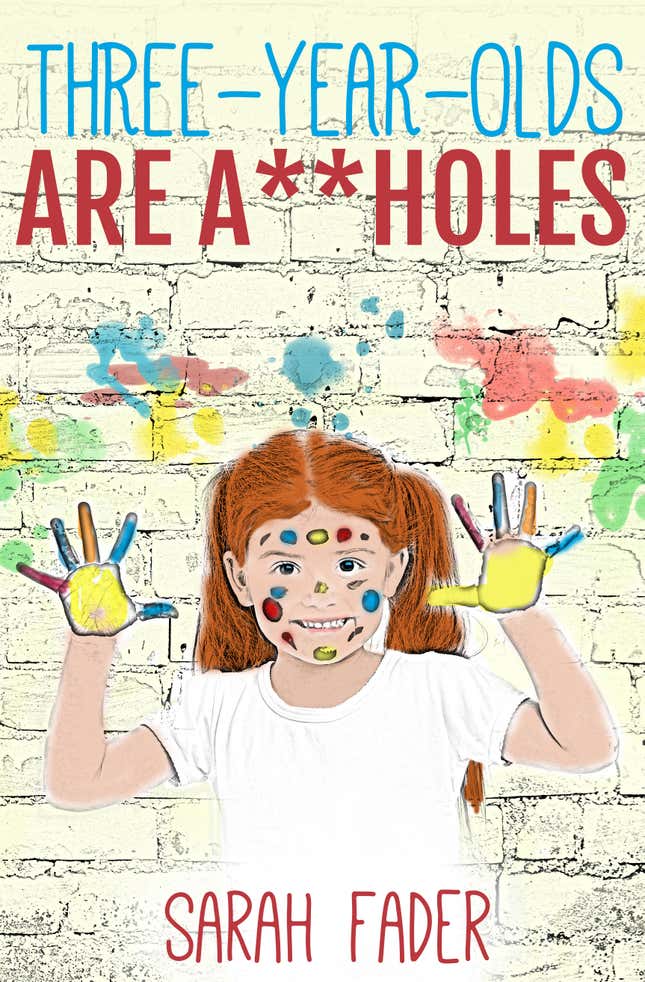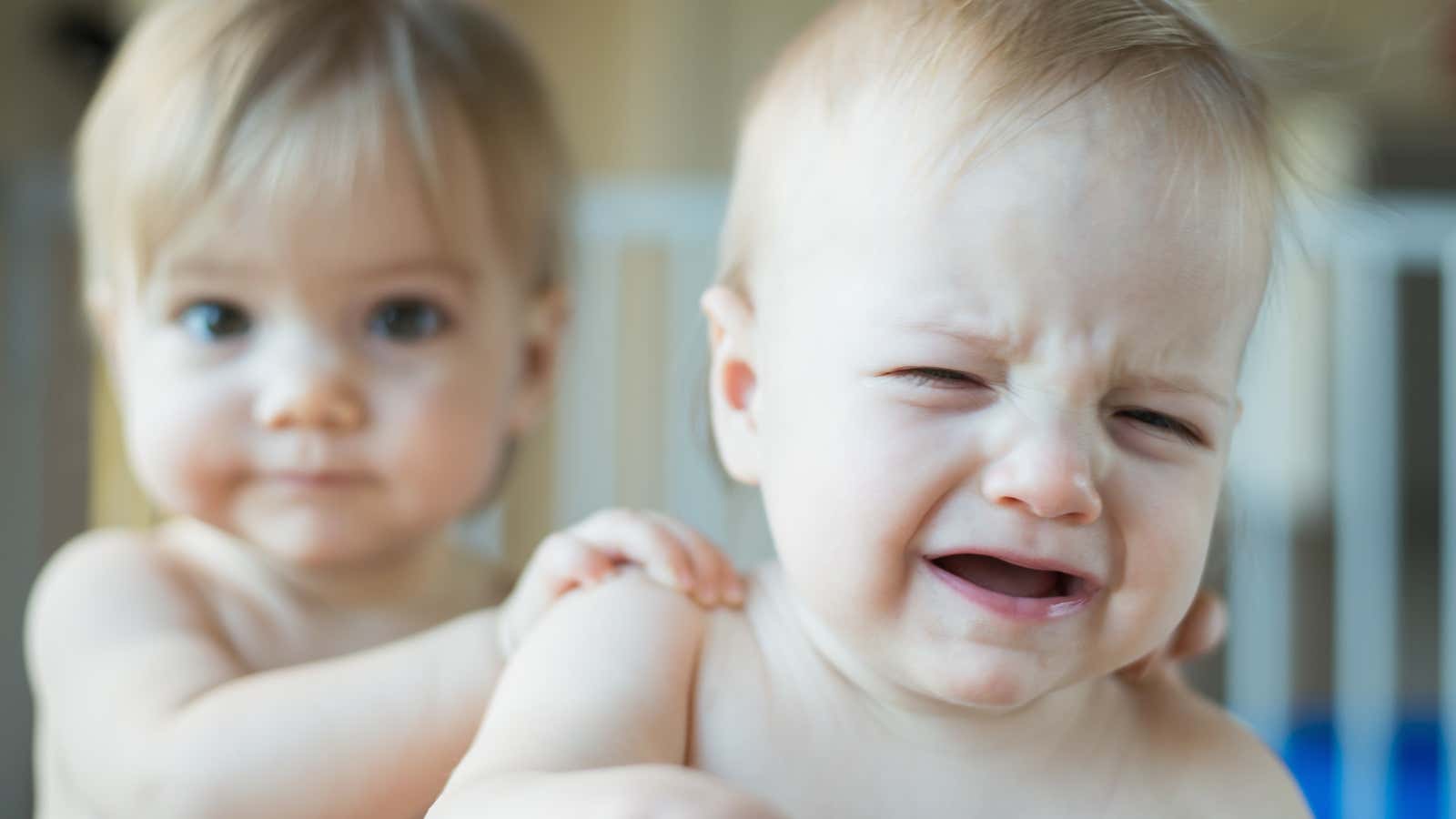Three-year-olds are assholes. No, really, hear me out. I have had two of them, which means I have experienced more than my fair share of the “asshole behavior” that becomes par for the course once you turn the corner on those oh-so-terrible-two’s.
Imagine this scenario: my three-year-old daughter, whom I love dearly, asks me to make her macaroni and cheese. “Lunch is ready,” I cheerfully announce soon after to my spirited child, who is now attempting to draw on our white walls with my $20 mascara. She stops her art project, takes one look at her lunch and proclaims, “I don’t want mac and cheese. I want spaghetti!” She then grabs the mac and cheese and throws it on the kitchen floor.
This kind of behavior obviously would not be acceptable if repeated in the adult world. If, for example, your good friend Mary angrily dumped out her cup of coffee on your carpet after learning you’d run out of milk, you would be more than horrified. In fact, you would be forgiven for assuming Mary was quite unpleasant.
As parents, it’s hard not to constantly make these types of easy, if inaccurate, comparisons. We try to be the best parents we can to our curious toddlers, but sometimes, after a day of them intentionally ignoring everything we do, we just have to go into the bathroom and cry a little.

My daughter is the inspiration for a book I wrote on these types of challenges, a bit of a primer to help parents and non-parents alike understand why exactly the tiny human in front of you is acting like such a terrible person.
Through the book’s main character Samantha, the reader is offered a glimpse into the inner workings of the three-year-old mind. Three is an age where children are realizing that they are separate from their parents and are actively seeking independence by exploring the world around them. To be clear: this is a natural phase in child development. Unfortunately, in order to achieve that separation from mom and dad, many three-year-olds need to feel as if they have control over their surroundings.
Three-year-olds are also adventurous. In conjunction with an imaginative spirit comes a highly emotional being. At this age, children have little control over how they regulate their emotions. Of course, the fact that a three-year-old is acting in a generally developmentally appropriate manner is little consolation when said child is hurling markers at your face.
I wrote Three-Year-Olds Are A**holes, the book, for two reasons. First, I wanted to try to humanize parenting. There is no perfect parent and there is no ideal child. Parents are humans and we make mistakes—lots of them—and it’s important that we be able to forgive ourselves for those blunders.
The second purpose of the book is to make parents laugh. Too often, we are swept up in the stressful day-to-day activities of parenting. We forget that the outrageous things that our children do are objectively pretty hilarious. Laughter is essential in parenting because frankly, if you don’t laugh, you will likely end more days crying in the shower. That is, if your children allow you an opportunity to shower.
Remember parents, ultimately you are not alone—men and women all over the world are dealing with similar challenges and frustrations and emotions. The best thing we can do is have a sense of humor about it. And know that, with any luck, our little assholes may one day grow up to be well-adjusted adults. Hopefully.
